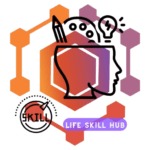Table of Contents
ToggleWhat are Keywords?
- Definition: Words or phrases that users type into search engines to find relevant content.
- Role: Fundamental in search engine optimization (SEO) and online marketing.
Types of Keywords:
- Short-Tail Keywords: Broad and general phrases.
- Long-Tail Keywords: More specific and longer phrases.
- Product-Defining Keywords: Specific to products or services.
- Customer-Defining Keywords: Reflect user demographics or characteristics.
- Geo-targeting Keywords: Location-based keywords.
Keywords Based on Length:
- Head Keywords: Short, usually one or two words.
- Body Keywords: More specific, often two to three words.
- Long-Tail Keywords: Longer and more specific phrases.
History of Keyword Research:
- Early Days: Simple keyword stuffing.
- Evolution: Introduction of algorithms like PageRank.
- Modern Approach: Focus on user intent, quality content, and relevance.
Why is Keyword Research Important?
- Enhances Visibility: Improves search engine rankings.
- Understands User Intent: Helps create content that meets user needs.
- Drives Quality Traffic: Attracts visitors genuinely interested in the content.
LSI Keywords:
- Latent Semantic Indexing (LSI): Keywords related to the main keyword.
- Role: Enhances content relevance and context.
- Example: For “apple,” LSI keywords could include “fruit,” “orchard,” or “nutrition.”
What is the Keyword Research Process?
- Understand Business Goals: Align keywords with business objectives.
- Identify Seed Keywords: Core terms relevant to the business.
- Expand with Tools: Use keyword research tools (e.g., Google Keyword Planner).
- Analyze Competition: Evaluate keywords competitors are targeting.
- Refine and Prioritize: Select the most relevant and valuable keywords.
- Create Content Plan: Develop content around selected keywords.
Understanding Your Target Market:
- Demographics: Age, gender, location, interests.
- Behavioral Patterns: Search habits, preferred platforms.
- Needs and Pain Points: Understand user queries and intent.
What is Keyword Density, and Does It Matter?
- Definition: Percentage of times a keyword appears in content compared to the total word count.
- Importance: Avoid over-optimization; focus on natural, high-quality content.
Know What Your People Want:
- User Intent: What users aim to find when searching.
- Answering Queries: Create content that addresses specific questions.
- Analyzing Search Trends: Stay updated on changing user behaviors.
How to Use Google Keyword Planner?
- Access Google Keyword Planner: Sign in to your Google Ads account.
- Start a New Plan: Enter relevant keywords or your website URL.
- Review Keyword Ideas: Get suggestions based on your input.
- Refine and Select Keywords: Evaluate search volume, competition, and bid estimates.
How Do You Do the Business Analysis?
- Understand Business Objectives: Align keywords with business goals.
- Competitor Analysis: Identify keywords competitors are targeting.
- Target Audience Analysis: Know your audience demographics and behavior.
- Product/Service Focus: Highlight core offerings in keyword strategy.
Keyword research is a critical component of SEO and digital marketing. It involves understanding your audience, aligning with business goals, and creating content that addresses user needs. If you have specific questions or need further clarification on any aspect of keyword research, feel free to ask!
